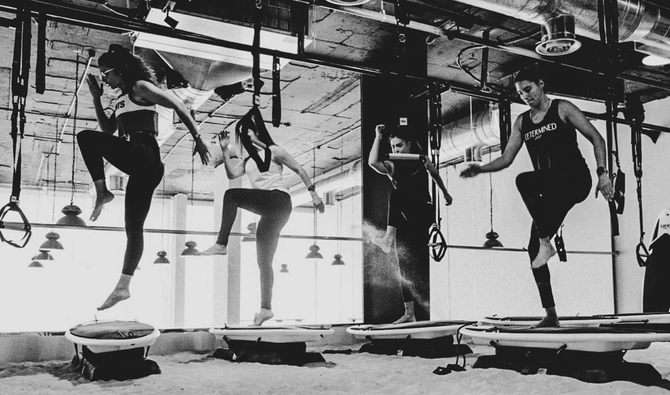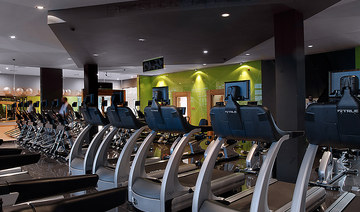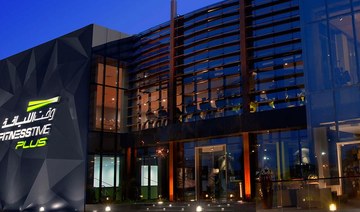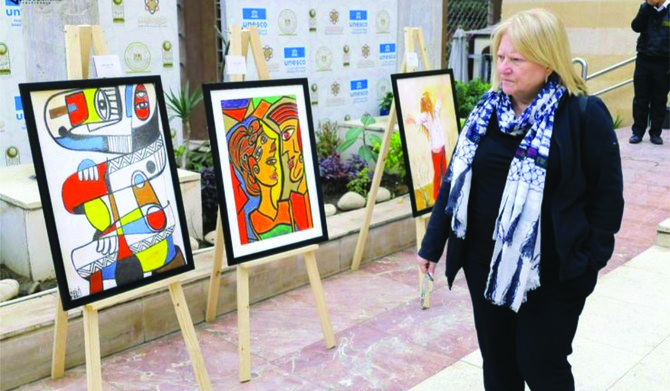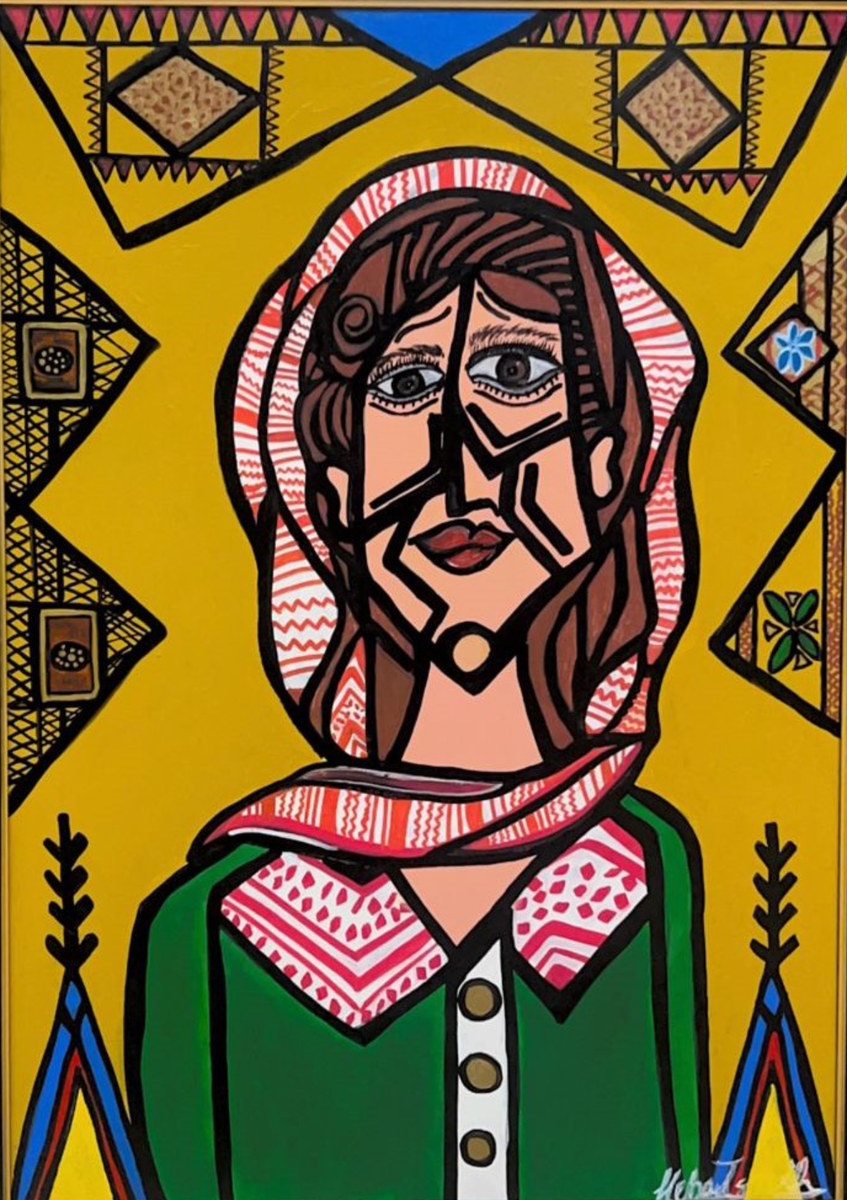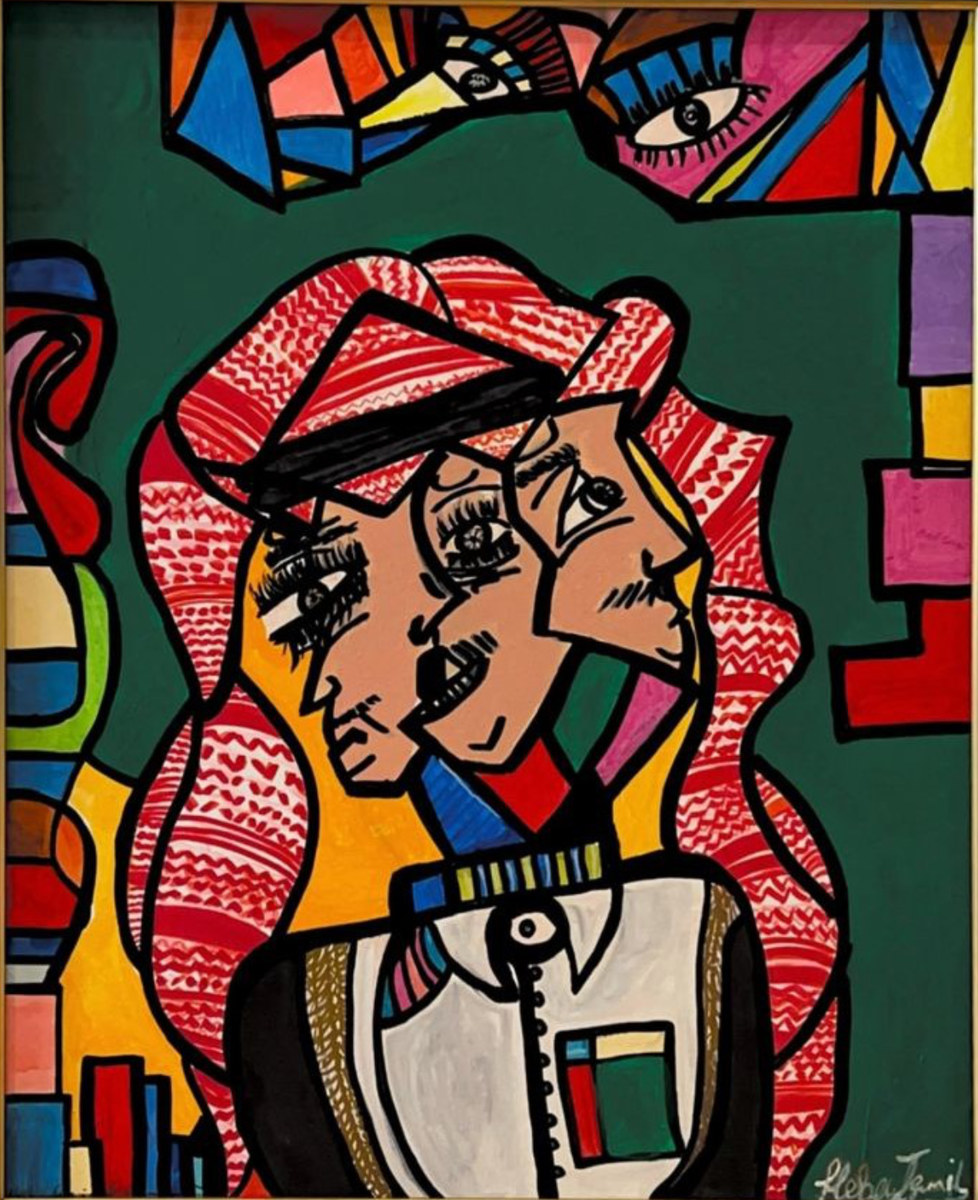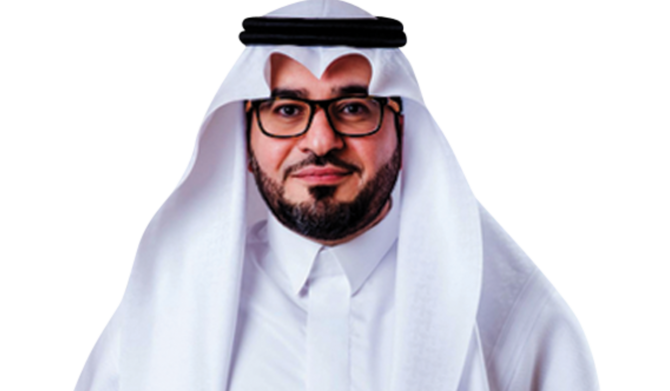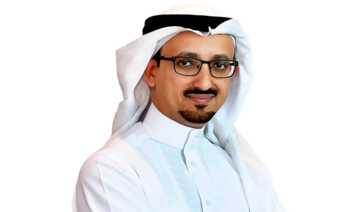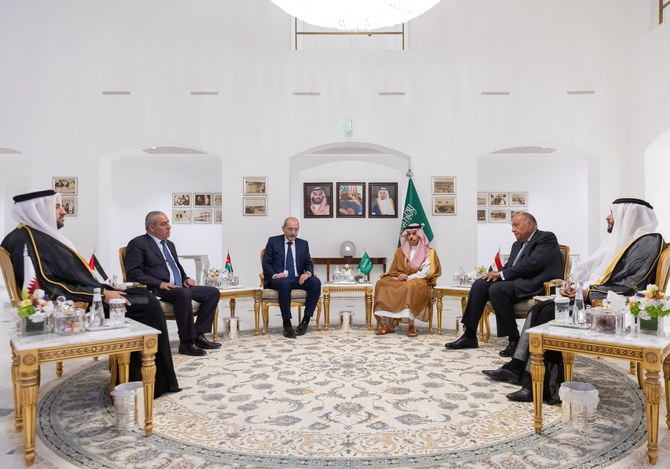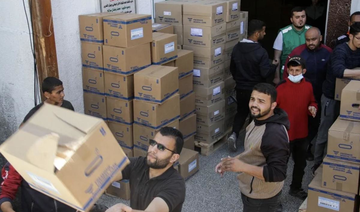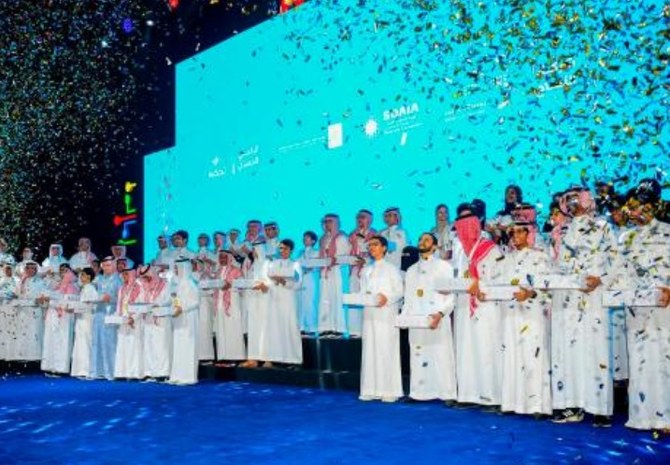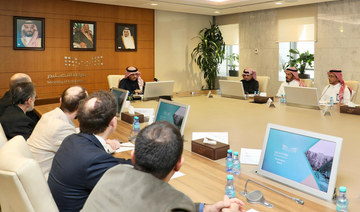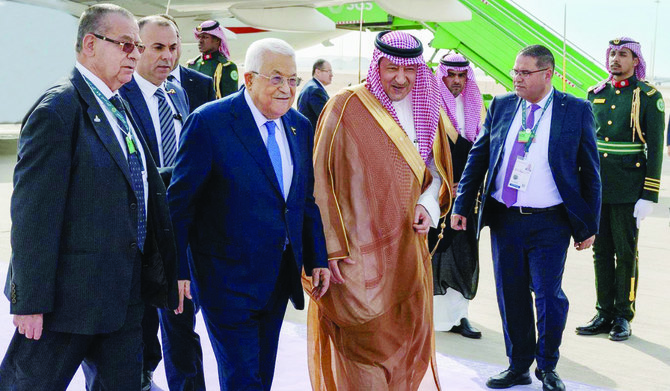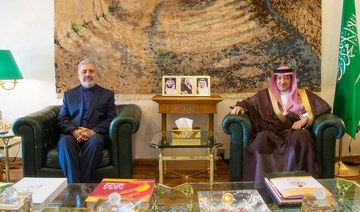DUBAI: From hiking over its rugged mountains to biking through its scenic valleys, two young Saudi women have made it their mission to take their peers on a national tour of the Kingdom — while helping them keep in shape.
Nouf Al-Nasser and Maram Al-Nemer, founders of SANDS Studio in Riyadh, launched their adventure fitness program, specifically geared toward women, shortly before the onset of the COVID-19 pandemic.
Now, as the Kingdom reopens and the domestic tourism industry rallies, the program has seen an explosion in popularity. The unique format allows participants to get active while also exploring Saudi Arabia’s natural wonders.
“It is not common to have gyms do this here,” Al-Nemer, 26, told Arab News. “But from the first time, it was fully booked within three days. It’s always something new, a new location and a different concept.”
In 2018, Al-Nasser and Al-Nemer joined forces to create SANDS Studio, a boutique gym targeting women, which offers fun workouts centered around sand and surfboards, known as surf fitness.
For people with joint pain, chronic injuries or back problems, traditional gym training can be difficult and intimidating. With its intuitive format, SANDS Studio aims to break down these barriers to fitness in any enjoyable way
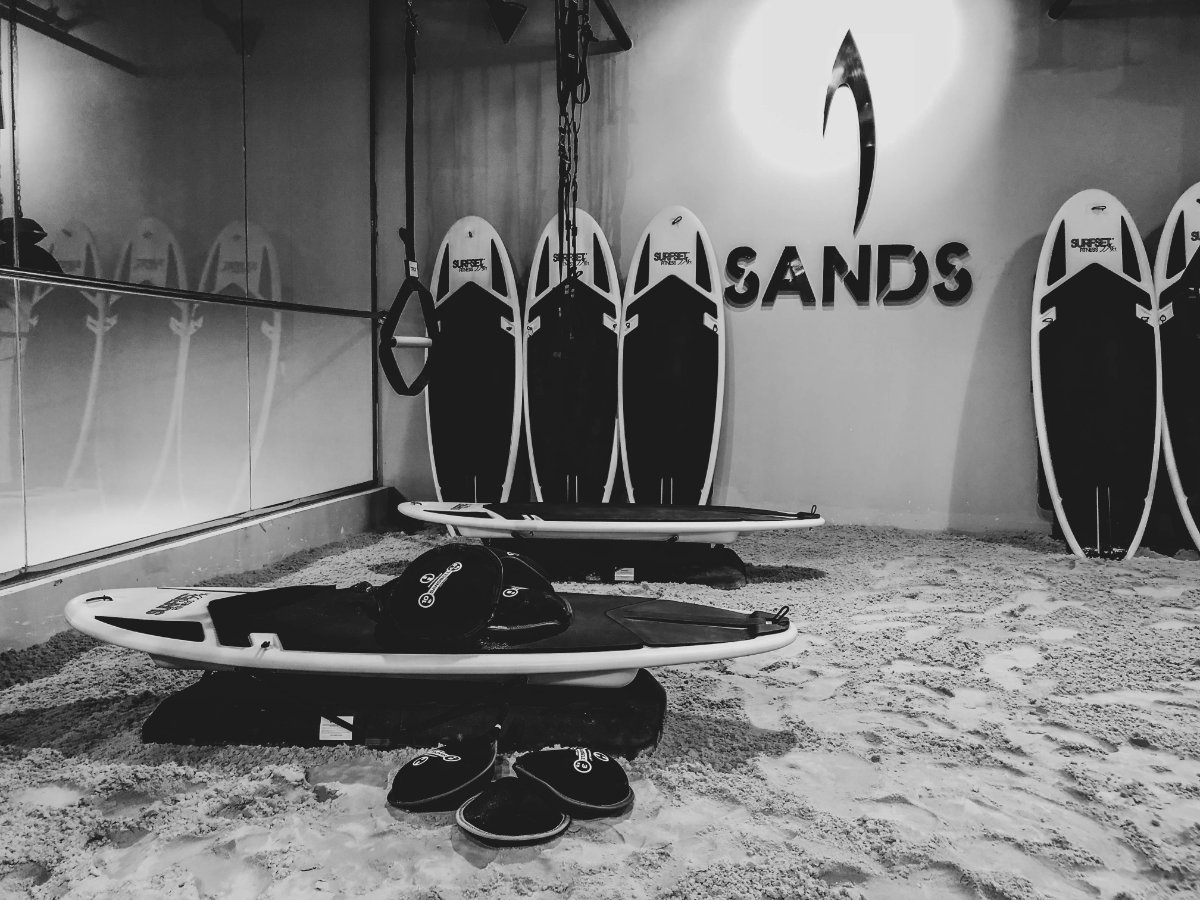
Balancing on a surfboard propped up on inflated air pockets stretches the muscles gently, eases pressure on the joints and strengthens the core. (Supplied)
When balancing on a surfboard propped up on inflated air pockets, participants are able to mimic the movement of the sea, gently rocking and stretching their muscles, easing pressure on the joints while strengthening their core.
Al-Nasser, 32, who gave up her job in real estate to devote herself entirely to the business, says the idea stemmed from a stint of surfing lessons in Bali, Indonesia.
“I was a CrossFitter and a coach, but it was not my full-time job,” Al-Nasser told Arab News. “I was training with cases that interested me, like people who struggled with their fitness.
“We wanted to learn more about the problems people faced so we could create our own program based on what we saw.
“I realized that it was a great idea because it has balls of air at the bottom, which helps me with clients with scoliosis or spinal issues, so that’s when we created the Sand Room.”
Working out on a sandy surface can help strengthen the foot and ankle muscles and burn more calories, while also stabilizing other joints. The gym has proved a massive hit in the Saudi capital, where the fitness market is otherwise dominated by big fitness chains. SANDS is the first gym in the Kingdom, and the second in the Gulf Cooperation Council (GCC) area after Kuwait, to offer surf fitness classes.
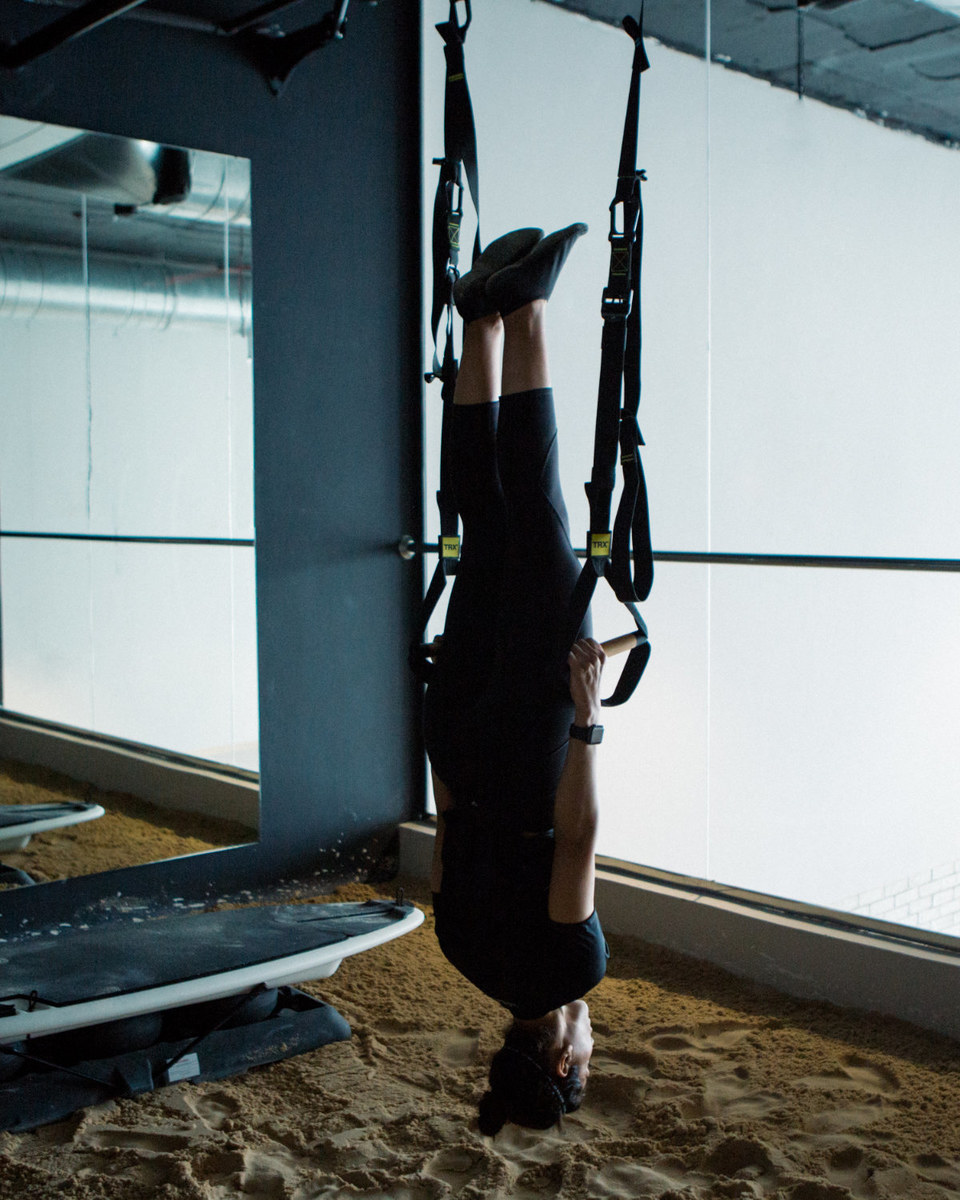
SANDS Studio aims to break down these barriers to fitness in any enjoyable way. (Supplied)
At the height of the pandemic, when businesses were forced to close their doors, SANDS was able to move many of its classes online and continue supporting its clientele remotely. It was also an opportunity to focus on its clothing line.
“We had loyal clients, we promoted our clothing brand, and then we started our adventures,” Al-Nemer said.
Indeed, after so many months stuck indoors under COVID-19 lockdown measures, customers were desperate to sign up for the adventure program, dubbed “Walk with SANDS,” which offered something that is often missing from personal fitness — a sense of community.
“At SANDS we want to promote fitness as a lifestyle rather than just purchasing a membership,” said Al-Nemer. “We are trying to build a community where you can have your own friends at the studio or wherever we go out on hikes. Now we are doing trips around Saudi Arabia.”
Following its early success, the partners went on to launch SANDS Season, organizing sell-out trips to the Kingdom’s archaeological wonders like AlUla, sunrise bike rides around the region’s mountains, and half day trips near the capital. Every trip accepts a maximum of 20 women over the age of 18.
“We were trying very hard to look for new, creative and unique places, but now we don’t have to, because new unique places now contact us to set up a trip,” Al-Nasser said.
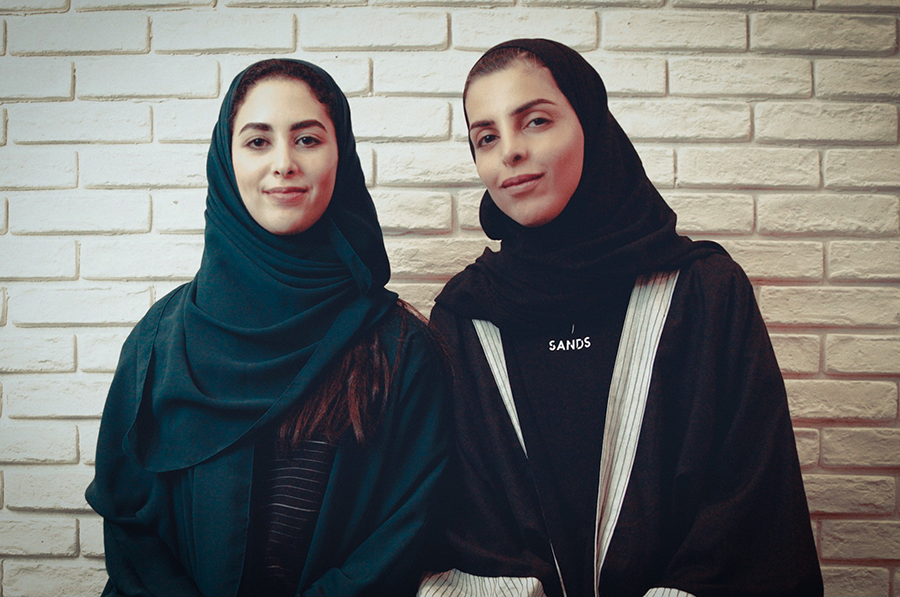
Nouf Al-Nasser and Maram Al-Nemer, founders of SANDS Studio in Riyadh, launched their adventure fitness program, specifically geared towards women.
“There are a lot of places in Saudi Arabia that people don’t know of. I didn’t know a lot of places, to be honest, but that is when our friends really stepped up and helped us. They would tell us about a place and we would visit two or three weeks later.”
One of their most recent trips took participants to NEOM, the Kingdom’s new smart-city giga-project taking shape on the Red Sea coast, which included a camping stay and a boat trip. “It was an amazing experience,” Al-Nasser said. “We try to create new things every time.”
Much of the program’s popularity is owed to the fact the outings are geared exclusively toward women. Since the Saudi government relaxed its guardianship laws and began encouraging women to enter the labor force, demand has blossomed for this kind of tourism.
“There are a lot of trips in Saudi Arabia that are public but little to none that are for females only,” Al-Nemer said. “We found out that, with everything happening now, the options are all for families and mixed groups, so we found strength in that.”
Coming up on SANDS’ June agenda is an event called “Unleash,” which will combine art, spiritualism and fitness. “We want to keep it fun but adventurous,” Al-Nemer said. “You are always going to be walking, hiking or swimming, but you won’t notice that you are being active.
“All this is happening while you are having fun and while you are looking around. It’s basically like a hidden workout.”






